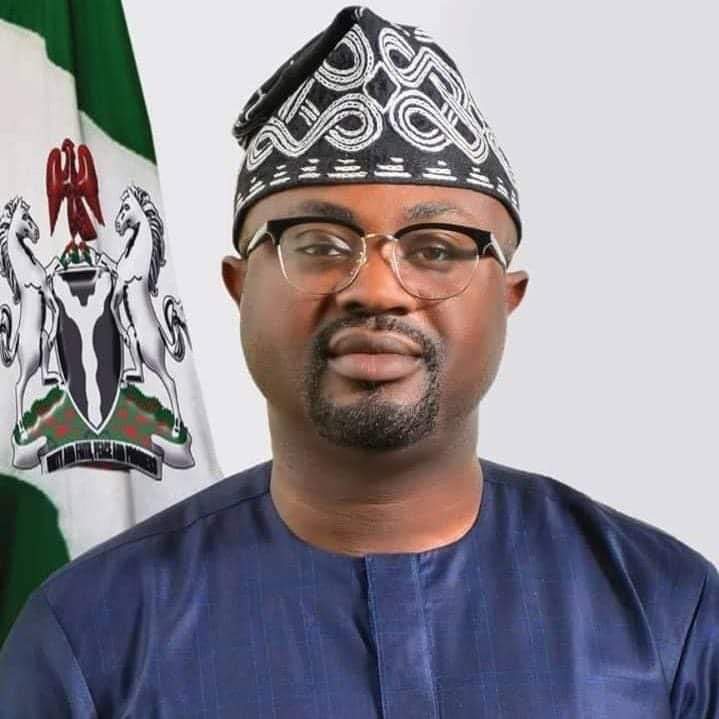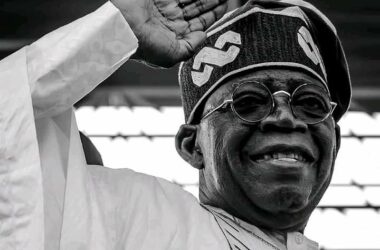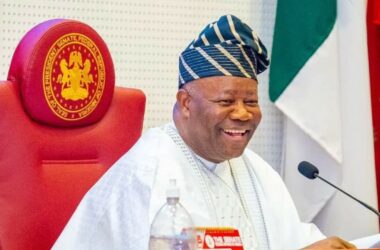In their best-selling book, WHY NATIONS FAIL, Professors Daron Acemoglu and James A. Robinson, tried to debunk some widely-held theories as to why some nations and societies in the world are prosperous and others much less so. It is not differences in climate, they contend, that account for global wealth disparities. Nor is it skin colour and racial background, or religious orientation. It is not even ignorance or incompetence on the part of the leaders and policymakers of poor nations and societies – as opposed to the knowledge and skill of their counterparts in more prosperous ones.
The chief reason for these disparities, the two academics contend, is ATTITUDE. Leaders and policymakers know EXACTLY what to do to develop their entities – that is, to create the political environment (and institutions) that in turn create the economic environment that allows businesses to thrive, jobs and livelihoods to be sustainable, and economies to grow and expand. It’s not rocket science; on the contrary, it’s a proven formula for success.
But they don’t do it simply because they lack the political will to do it. Either they see no immediate personal or narrow group advantage for themselves in doing what must be done, or, in many cases, it’s simply not good politics; you may step on toes, and those toes may in turn step on your neck – both literally and metaphorically.
One man, however, that doesn’t seem to suffer from this particular ailment of governance, (namely, a lack of political will) is Hon. Olubunmi Tunji-Ojo, Nigeria’s Interior Minister. Since his inauguration by President Bola Tinubu a few months ago, the minister has gone about his assignment with a single-mindedness that that is unusual in these parts – especially in public officials. On some of the key components of the ministry’s mandate, Tunji-Ojo has begun to expedite actions and outcomes designed to give the ministry a new and positive image on the part of the generality of Nigerians by, among other things, modernising administrative procedures, reducing delays, and streamlining service delivery operations.
One of the ministry’s key mandates is the issuance of international passports to Nigerian citizens – a process which, like almost all things Nigerian, has been plagued by all manner of (mostly man-made) challenges, all of which have conspired to ensure that many Nigerians do not see their passports months and even years after applying for them. Upon his assumption of office, however, Tunji-Ojo wasted no time in making clear his determination to improve the efficiency of passport application and collection, immediately directing the heads of the ministry’s relevant agencies to expedite the process. He has said, repeatedly, that the days of lengthy queues for passport acquisition in Nigeria are coming to an end – and he looks like he means it.
Reminding his compatriots that the current situation does not align with the FG’s plans and aspirations for Nigeria’s future, he has emphasized the need for substantial transformations in the modus operandi and business model of the ministry and its agencies (especially the immigration and correctional services) by harnessing technological advancements, but also by sheer hard work, commitment and, yes, political will. “If we have officers who are not ready for this rigorous process,” he adds ominously, “we will excuse them.”
So far, that approach has worked wonders. Just the other day, the ministry announced, with a justified sense of accomplishment, that 204,322 international passports are now ready for collection – out of a backlog of over 300,000 the minister met on assumption of office. So far, about 100, 000 of them have been collected, as Nigerians react to the strides of this young minister with approval.
To hear the minister talk, there’s more to come from the ministry of the interior. For example, the ministry is working on delivering passports directly to the preferred locations of Nigerians from February next year; immigration will soon issue adult passports with a 10-year validity; before long, applicants would not need to wait longer than two weeks for their passports; and the ministry has commenced the automation of its end-to-end passport application process – complete with a timeline from which Nigerians will begin to experience a whole universe of service experience.
The same paradigm applies to foreigners intending to travel to Nigeria, in respect to the ministry’s visa application service, towards which the ministry has set in motion moves to open more visa application centres across the globe. This is in addition to strengthening its visa-on-arrival policy. Also, the ministry is working with the Ministry of Foreign Affairs to enforce the principle of the doctrine of reciprocity, and for the harmonisation of data to restore the integrity of travel documents.
Another icing on the Tunji-Ojo multi-layered cake of reforms is his plan to bring the response time of the federal fire service to just 15 minutes, max – as part of a radical overhaul meant to make that grossly-inefficient and much-maligned service fit for purpose again, as it once was.
In a show of confidence in the interior ministry’s new-found vibe, the federal government recently moved the National Identity Management Commission (NIMC) – the body saddled with the mandate to establish, own, operate, maintain and manage the national identity database in Nigeria, as well as register persons and assign a unique national identification number (NIN), and general multi-purpose cards (GMPCs) to citizens of Nigeria as well as others legally residing within the country – to the Ministry of Interior from its former designation under the Ministry of Communications, Innovation and Digital Economy. With this integration, the Presidency said, all agencies involved in identity data gathering and management, as well as the security of lives and property, would be able to function optimally and seamlessly.
Needless to say, the timing and import of the FG’s move are not lost on stakeholders of all stripes and political affiliations, who have showered Hon. Tunji-Ojo with effusive praises as well as charges on ways to sustain the tempo. For some, the Minister’s strides speak not just of his fidelity to the Renewed Hope agenda of the Tinubu-led administration, but also of his commitment to its actualisation – as could be seen from the vision, clarity and pragmatism of the 8-point agenda he unveiled on his assumption of office. For others, Tunji-Ojo’s accomplishments so far, are a confirmation of the point made earlier in this piece – about political will (or lack thereof) in determining one’s ability to make an impact in public office. This record of performance, lest we forget, is coming on the heels of a four-year stretch in which the interior ministry, under the previous helmsman, was bogged down by both systemic and administrative challenges which greatly hindered its ability to carry out its mandate in any meaningful way. To his credit, Tunji-Ojo’s predecessor, Ogbeni Rauf Aregbesola, did set an agenda for action during his time there. But few – if any – of the items on that agenda ever saw the light of day, the huge backlog of unprocessed passport applications being a case in point. Not only did Aregbesola (previously the two-term Governor of Osun State) profess his ignorance about, and unfamiliarity with, the scope covered by the interior ministry on his assumption of office in 2019, but his very appointment was a political gesture, no more.
Late in September 2023, a Twitter poll asked users of the app to vote for the minister (among just 3) with the most impressive performance so far in the Bola Tinubu administration. The list comprised the minister of interior, Hon. Tunji-Ojo, his humanitarian affairs and poverty alleviation counterpart, Dr. Betta Edu; and Festus Keyamo in aviation abd aerospace management – as well as ‘Others’ (ie any minister not mentioned on the A—C options list). Hon. Tunji-Ojo emerged the runaway winner of the poll with a 66% score, while the remaining options shared a total of just 34%. And for good reason, too; the minister has shown an appetite for public service (as a means to an end, rather than an end in itself, as is the case with the average seeker of high office in Nigeria).
This devotion to the general good predates his current assignment or even his previous stint as a legislator in the green chamber of the National Assembly. It manifested itself way before then. Born on May 1, 1982 at Oyin Akoko in Ondo State, Nigeria, BTO (as he was fondly called by his family, friends and admirers) had his primary education in three different schools before finishing at the Universal Primary School, Akure in 1993. He thereafter proceeded to FUTA Staff Secondary School, Akure for his secondary education, serving as the Senior Prefect in 1998.
In 1999, he gained admission into the Obafemi Awolowo University, Ile-Ife to study Electrical and Electronics Engineering. In 2002, while still in his third year at OAU, he proceeded to the University of North London (now London Metropolitan University) to study Electronics and Communication Engineering, graduating in 2005 and following his up with a master’s degree in Digital Communication and Networking from the same institution in 2006. Tunji-Ojo holds other certifications in a whopping 18 professional qualifications in ICT (including the distinction of being one of the first set of certified ethical hackers from Royal Britannia IT Training Academy in the United Kingdom.
All this, before he turned 24!
Tunji-Ojo became the CEO of a leading indigenous ICT consultant company in Nigeria, Matrix IT Solutions Limited. He also consulted on ICT solutions for the World Bank and several government agencies, including the Petroleum Technology Development Fund; the Joint Admissions and Matriculations Board; the National Film and Video Censors Board; the Nigerian Content Development and Monitoring Board; the National Health Insurance Scheme; the Nigeria Sovereign Investment Authority, the Nigeria Gas Company, the National Commission for Mass Literacy, Adult and Non-Formal Education, as well as various committees of the Senate and House of Representatives of the Federal Republic of Nigeria. In collaboration with other relevant stakeholders, he pioneered the first Nigerian Content Workshop (NCW) in 2016, a forum for all stakeholders in the Oil and Gas Industry to discuss freely on the Policy Framework to improve indigenous participation and making use of the Nigerian Content Policy to domicile the best global productivity and performance in Nigeria.
In 2019, Tunji-Ojo made his foray into politics, and was elected into the House of Representatives to represent the Akoko North East/Akoko North West Federal Constituency of Ondo State on the platform of the All Progressives Congress (APC). Months later, he was appointed Chairman of the House Committee on the N/Delta Development Commission (NDDC). He was also a member of various other committees cutting across sectors of the nation’s economic and public life.
He was re-elected into the 10th Assembly of the House in 2023. This second term was however cut short by his appointment and inauguration as Minister of the Interior by President Tinubu in August 2023.
Hon. Tunji-Ojo is the recipient of many awards and accolades, the most notable ones being an Honorary Doctorate Degree in Public Administration from the Joseph Ayo Babalola University (JABU) Ikeji Arakeji in Osun State, as well as the Sir Ahmadu Bello Platinum Leadership Award of Excellence, and the Kwame Nkrumah Leadership Award as a Worthy Ambassador of African Youth; and the First Alert Magazine Merit Award as the Best Federal Incumbent Honorable Member for Remarkable Contributions Towards the Growth and Development of the South-West region (in 2020), among many others.
Upon assuming office as Minister, Tunji-Ojo had promised to ‘lead from the front‘ in the quest to reshape the Ministry of Interior and elevate its role in securing the nation’s well-being. So far, he has kept true to that promise with a sense of purpose and a poise that have captured the nation’s attention – and given the young people in particular, certain bragging rights in the tug-of-war between the generations. His passion, readiness, and proactive approach, as well as his engagement with agencies under his purview – which is underpinned by a dedication to excellence – have demonstrated his unwavering commitment to Tinubu’s ‘Renewed Hope’ agenda and made him a lodestar in the Tinubu Administration.






